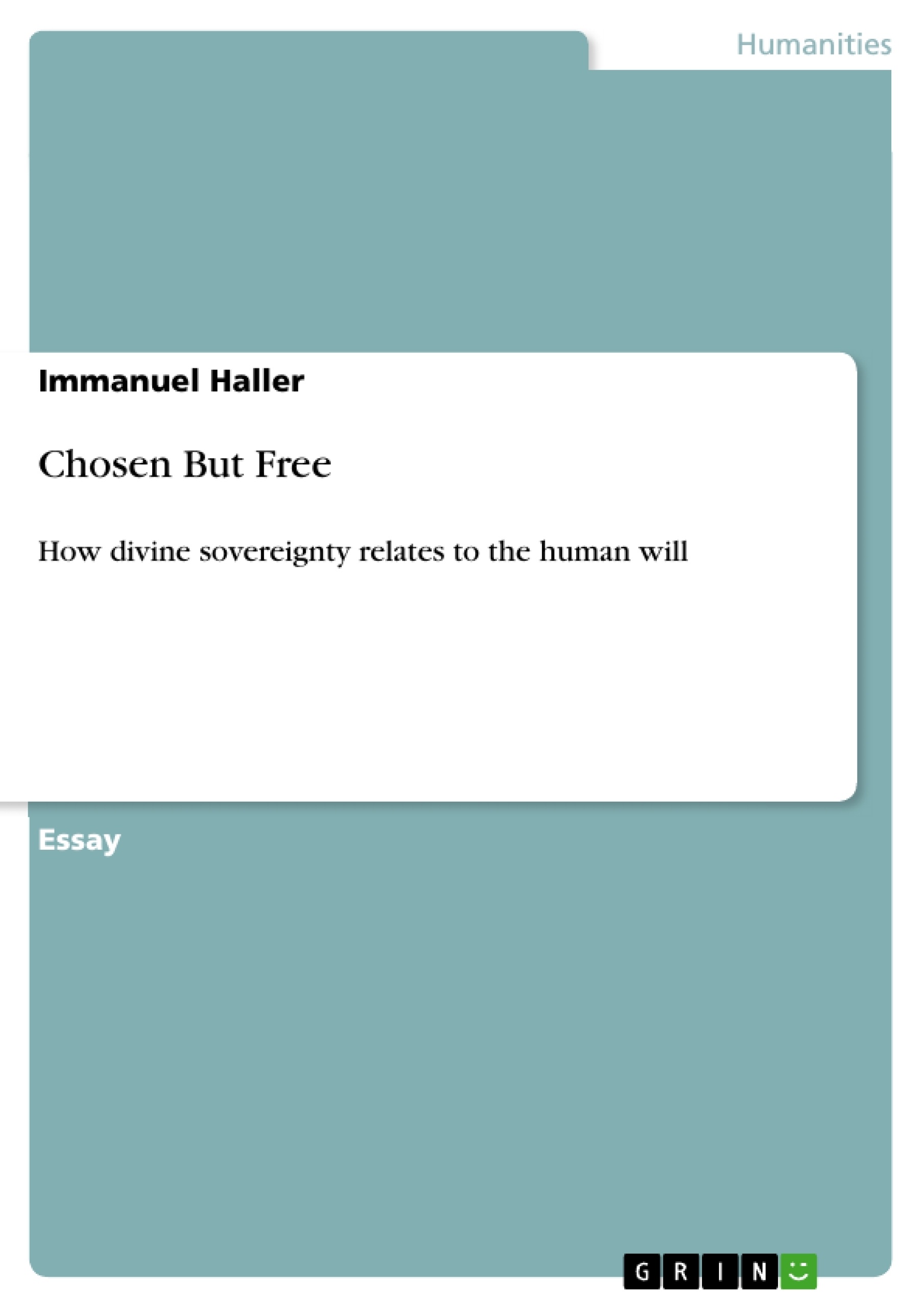Did God decide that certain specific persons would go to heaven or hell, before he created the world? Did God know everything that would ever happen before he created anything? If so, did God know this because he determined these things would happen, or vice versa?
Inhaltsverzeichnis (Table of Contents)
- INTRODUCTION
- CHOSEN BUT FREE
- Free Will or Divine Sovereignty
- God's Sovereignty
- Who Made the Devil Do?
- Who Made the Devil?
- The Origin of Evil
- Reward and Punishment
- Free Will and Divine Sovereignty
- Seeing the Alternatives
- Calvinism
- Pelagianism
- Arminianism
- Depravity and Free Will
- Election
- Predestination and Human Freedom
- Before Knowledge of God..
- Salvation/Chosen by God and Chosen by Man
- CONCLUSION
Zielsetzung und Themenschwerpunkte (Objectives and Key Themes)
This essay seeks to develop a Pentecostal-Evangelical doctrine of election, exploring the complex relationship between divine sovereignty and human free will, particularly in the context of salvation. The essay aims to reconcile the idea of God's absolute control with the responsibility of individuals to accept or reject the gospel.- The nature and extent of God's sovereignty.
- The role of human free will in the face of divine predestination.
- The origin of evil and the relationship between freedom and evil.
- The theological perspectives of Calvinism, Pelagianism, and Arminianism.
- The implications of election for human responsibility and the concept of salvation.
Zusammenfassung der Kapitel (Chapter Summaries)
The introduction explores the central question of divine sovereignty and human responsibility, particularly in relation to accepting or rejecting the gospel. It presents the essay's aim of developing a Pentecostal-Evangelical understanding of election, highlighting the significance of human free will in this context. The first section, "Chosen but Free," delves into the relationship between divine sovereignty and human free will. It explores the concept of God's complete control, illustrated through biblical examples, and raises the question of how human freedom exists within this framework. This section also addresses the problem of evil, examining the argument that "the devil made me do it" and its implications for divine sovereignty. The "Who Made the Devil?" section presents an alternative view to strong Calvinism, arguing that God did not create evil or force the devil to sin. Instead, it posits that Lucifer's original sin was a result of his own free choice, thus acknowledging the possibility of self-caused evil. This section further explores the concept of free will as the origin of evil, highlighting the inherent risk associated with freedom. The final chapter, "Reward and Punishment," examines the moral implications of free will. It argues that while God is morally accountable for providing free will, He is not responsible for the evil choices made by individuals. This section concludes by highlighting the necessity of a significant free will for human moral agency, emphasizing the importance of individual responsibility for one's actions.Schlüsselwörter (Keywords)
The essay explores central themes of divine sovereignty, human free will, election, predestination, salvation, the origin of evil, and the theological perspectives of Calvinism, Pelagianism, and Arminianism. It delves into the concept of moral responsibility and the implications of free will for both human action and the acceptance or rejection of the gospel.Frequently Asked Questions
What is the central theme of "Chosen But Free"?
The essay explores the relationship between God's divine sovereignty and human free will, specifically within a Pentecostal-Evangelical theological framework.
How does the author explain the origin of evil?
The text argues that evil originated from the free choice of created beings, such as Lucifer, rather than being directly created or forced by God.
What are the differences between Calvinism and Arminianism discussed?
The essay compares perspectives on predestination, examining whether God's choice or human response is the primary factor in salvation.
Is God responsible for human sin according to this doctrine?
No, the essay posits that while God is accountable for providing the gift of free will, individuals are responsible for the moral choices they make.
What is the Pentecostal-Evangelical view on election?
It seeks to reconcile the idea of being "chosen" by God with the genuine freedom of humans to accept or reject the gospel message.
- Quote paper
- Immanuel Haller (Author), 2010, Chosen But Free, Munich, GRIN Verlag, https://www.grin.com/document/196284



